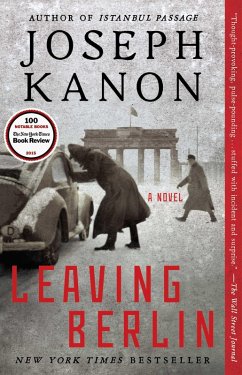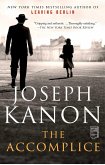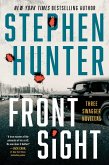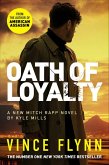Dieser Download kann aus rechtlichen Gründen nur mit Rechnungsadresse in A, B, BG, CZ, D, DK, EW, E, FIN, F, GR, HR, H, I, LT, L, LR, NL, PL, P, R, S, SLO, SK ausgeliefert werden.

"In den Ruinen von Berlin", so hieß Joseph Kanons Roman in deutscher Übersetzung, bevor Steven Soderberghs Verfilmung mit Cate Blanchett und George Clooney den Originaltitel "The Good German" auch hier durchsetzte. Für Kanons neuen Roman ist man gleich beim Originaltitel geblieben, "Leaving Berlin", obwohl hier "In den Ruinen von Berlin" passender gewesen wäre. Denn dort spielt der Roman, im Jahr 1949, in der Sektorenwelt, vor Gründung der beiden deutschen Staaten. Alex Meier kehrt aus dem amerikanischen Exil zurück, in den sowjetischen Sektor, nur halb freiwillig, weil er vor dem "Ausschuss für unamerikanische Umtriebe", im Gegensatz zum sibyllinischen Bertolt Brecht, Klartext sprach. Er ist kein Hardcore-Kommunist, er ist ein jüdischer Schriftsteller mit sozialistischen Sympathien. Und weil er nach einer gescheiterten Ehe nicht die Möglichkeit verlieren will, seinen in Amerika gebliebenen Sohn wiederzusehen, ist er natürlich auch für den amerikanischen Geheimdienst ein interessanter Mann.
Was für Meier prekär ist, das ist für einen Agentenroman eine wunderbare Ausgangssituation. Joseph Kanon entwickelt seinen Plot umsichtig, mit gut dosierten retardierenden Momenten und Gespür für Komplikationen. Dem fiktiven Meier begegnen im tristen Ost-Berliner Kulturleben und auf den Fluren des notdürftig hergerichteten Hotels "Adlon" Brecht und Ruth Berlau, auch Anna Seghers und Erich Mielke kreuzen seinen Weg. Die Beschreibungen des zertrümmerten Berlin haben eine große Anschaulichkeit und gespenstische Düsterkeit, die Fronten des Kalten Kriegs nehmen bereits unangenehm deutlich Kontur an, und die Dialektik von Linientreue und Abweichung zeigt ihre hässliche Gestalt. Meier bewegt sich in diesem verminten Gelände zunächst unsicher, bis ihn der Druck dazu zwingt, die Rolle des skeptischen Intellektuellen aufzugeben. "Leaving Berlin" hat, was ein guter Agententhriller braucht. Die kulturkritische Klage, niemand könne mehr Thriller schreiben wie Eric Ambler, hat der Amerikaner Kanon einfach ignoriert. Im Retro-Modus, wie er das auch schon sehr lesenswert in der "Istanbul Passage" und im "Good German" gemacht hat, erzählt er von der Urszene unserer Gegenwart: jenem Zeitpunkt, an dem Zerstörung und Neuanfang zusammenfielen. Ein leichtes nostalgisches Flair gibt es gratis dazu.
Peter Körte
Joseph Kanon: "Leaving Berlin". Roman. Übersetzt von Elfriede Peschel. C. Bertelsmann, 448 Seiten, 19,99 Euro
Alle Rechte vorbehalten. © F.A.Z. GmbH, Frankfurt am Main









